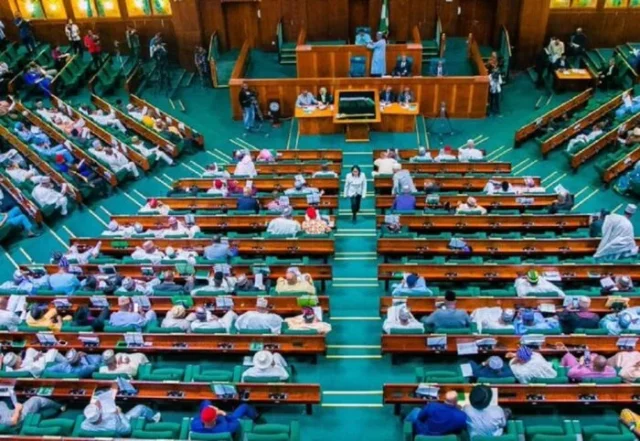
HOUSE OF REPRESENTATIVES PROBES N12 TRILLION DISBURSED TO DEVELOPMENT FINANCE INSTITUTIONS

The House of Representatives has launched an investigation into the management and utilisation of over ₦12 trillion disbursed to Nigeria’s Development Finance Institutions (DFIs) over the past seven years.
The inquiry, led by an ad hoc committee inaugurated on Wednesday, seeks to review the operations, funding, and performance of DFIs amid growing public concern over their transparency and effectiveness.
Committee Chairman Chidi Obetta said the probe would thoroughly examine how funds meant to drive industrialisation, agriculture, small and medium enterprises (SMEs), and infrastructure development have been utilised.
He disclosed that preliminary findings showed that capital injections, budgetary allocations, bond issuances, concessional loans, and donor funds channelled to the DFIs in recent years exceeded ₦12 trillion a figure still subject to verification pending submission of audited financial statements.
“The investigation responds to the growing public demand for transparency, accountability, and measurable impact from institutions designed to fill financing gaps not served by commercial banks,” Obetta said.
Institutions under scrutiny include the Bank of Industry (BOI), Bank of Agriculture (BOA), Nigeria Export-Import Bank (NEXIM), Infrastructure Bank, Development Bank of Nigeria (DBN), and the Nigeria Incentive-Based Risk Sharing System for Agricultural Lending (NIRSAL).
According to Obetta, the probe will determine whether these funds have reached their intended beneficiaries and contributed to job creation, industrial growth, and export expansion. He emphasised that the exercise is “not punitive but reform-oriented,” aimed at enhancing the efficiency and integrity of DFIs.
The committee, he said, would adopt a transparent, evidence-based approach, engaging key stakeholders such as DFI management teams, the Central Bank of Nigeria (CBN), the Ministry of Finance, development partners, and beneficiaries.
“Our goal is to ensure that Nigeria’s Development Finance Institutions operate as effective instruments for inclusive growth, poverty alleviation, and sustainable development,” he added.
Inaugurating the committee, Speaker Tajudeen Abbas—represented by the Deputy House Leader, Halims Abdullahi expressed concern over the poor performance of DFIs despite vast public funding.
He blamed the institutions’ inefficiency on poor transparency, political interference, and overly cautious lending practices, saying their limited impact on Nigeria’s poverty index and SME growth is “unacceptable.”
“The House will no longer support budgetary allocations to any DFI unable to demonstrate accountability, responsible financial management, and tangible developmental outcomes,” Abbas warned.
He stressed that public funds must reach productive sectors and citizens they are intended to benefit, cautioning against diversion and bureaucratic bottlenecks.
Representing CBN Governor Yemi Cardoso, Mr Ibrahim Hassan, a Director at the apex bank, pledged full cooperation with the investigation, noting that the CBN regulates and supervises DFIs to ensure compliance with prudential standards.
Also speaking, NEXIM Bank Managing Director, Mr Abba Bello, commended the House for the initiative, describing it as timely and necessary.
“These institutions should serve as engines of growth creating jobs, supporting industries, and generating foreign exchange,” Bello said, pledging NEXIM’s readiness to cooperate fully.
The ad hoc committee is expected to present its findings and recommendations to the House to strengthen DFI accountability, improve operational effectiveness, and ensure they fulfil their mandates of stimulating inclusive and sustainable national development.
